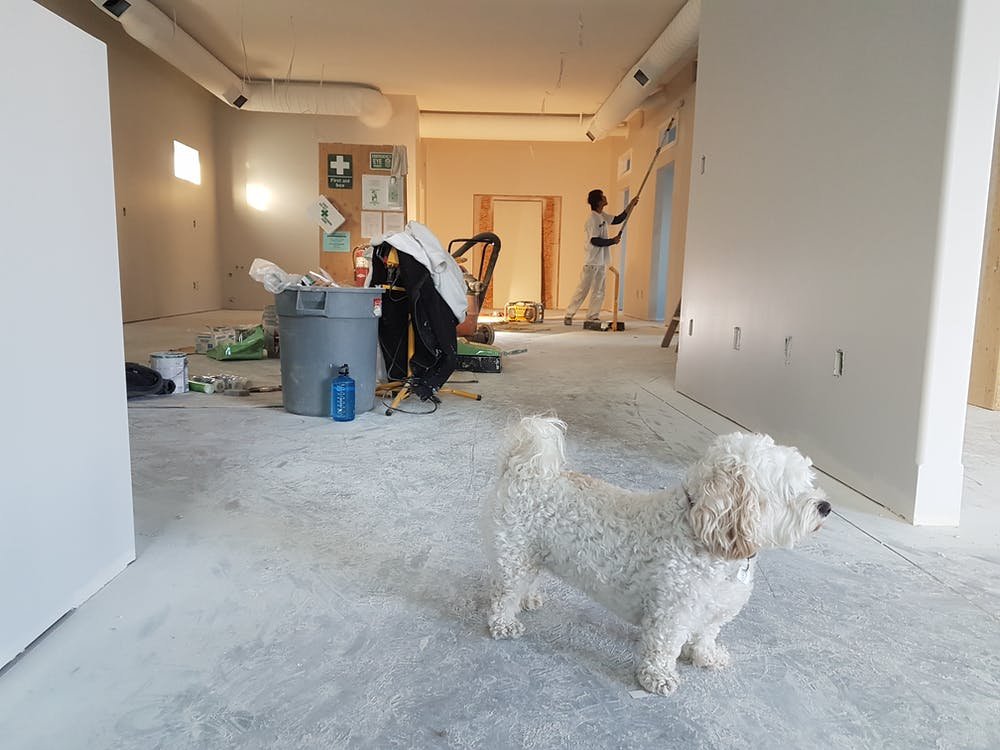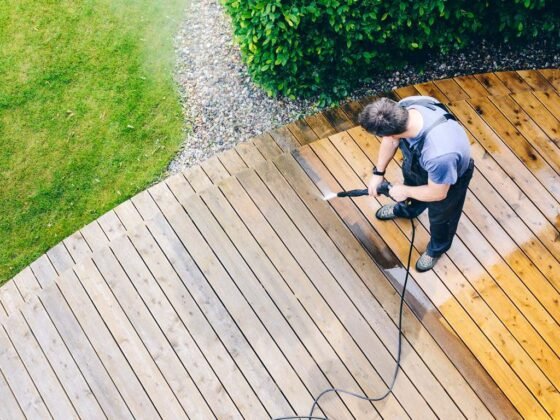Table of Contents Show
A home renovation is a worthwhile investment. However, one simple mistake on your home upgrade project may be too costly. This is why you need to do everything right to get the value for your investment.
To make things easier for you, here we have a list of things you must do before starting your home renovations.

1. Have A Realistic Budget
This is probably the most critical step. Be very clear about what you can afford and how much you’re willing to spend before looking at fancy kitchen upgrades or imagining your new walk-in closet. You don’t want to be paying off a reno for years after it’s done.
Be sure to add a buffer for unexpected costs. These happen with almost all projects and can easily tack on an extra 10 or 20% or more.
Furthermore, your budget includes permits, contractor fees, design fees, and even shipping or delivery fees. Even if you’re planning on doing some of the work yourself, factor in materials for that too.
2. Find Out Which Projects Add the Most Value to Your Home
You may be wondering, “Which projects should I tackle if I’m trying to add value to my home?” A project that’s considered a “must-do” is often one that adds value as well. The best way to determine a project’s value is to see whether it’s something you need or want.
For example, say you notice a leak under your kitchen sink and immediately call in a plumber. If the problem has been left unsolved for months and caused water damage to the flooring underneath, replacing the floor is probably necessary.
Read Also:
3. Plan Ahead and Set a Schedule
One of the most important things to do is to plan ahead and set a schedule. Knowing how long your project will take, what you need to accomplish each day and week, and how many people you’ll need on-site can help ensure that things don’t fall behind schedule.
It’s also vital that you have a contingency plan in place. What would happen if part of the job suddenly can’t be completed because of bad weather or delays from your contractors? What if some materials aren’t delivered on time?
Would there be any additional costs? Who would pay for them? These are all questions that should be considered before beginning a renovation project. Otherwise, they could add up quickly and lead to some serious disputes.
4. Consider Hiring a Professional Home Inspector
Hiring a home inspector can help you see things you might not see on your own. The inspector can test the heating/AC system and plumbing fixtures as well as get into areas of the house that might be off-limits to you, like the roof, basement, and attic.
An unbiased opinion is hard to come by when everyone around has an agenda. It’s easy for contractors or real estate agents to tell you what they think is best for their business, not necessarily what’s best for yours.
A professional home inspector will only offer solid recommendations and information about homes, not lead them in one direction or another.
Working with a professional home inspector also gives you the option to prioritize repairs and renovations based on which are most urgent versus simple upgrades for cosmetic purposes.
Here’s how to go about finding the contractor who will best suit your needs:
- Make sure they specialize in the type of work you need to be done. If you’re planning a bathroom renovation, it’s best to find someone with bathroom renovation experience.
- Check if they’re licensed, insured, and bonded. Their insurance policy covers you if anything happens on the job site due to their negligence.
- Check their references and reviews. Ask for references from past clients and look up what people have written about them online.
- Ask them questions about projects similar in scope to yours, and don’t settle for a general answer like “I’ve worked on lots of kitchens.” You want specifics. How long did it take? Did anything unexpected happen that put the whole job behind schedule? Did they go over budget? Etc.
5. Hire An Architect or Designer If the Project is Complex
You should always hire an architect or designer if the project is complex since they’re trained professionals and have experience planning projects. They can help you:
- Plan your project so all of the workflows together at a reasonable pace
- Design your project to take advantage of what you already have
- Set a budget for your project to prevent overspending on things that aren’t crucial
- Avoid mistakes by putting in place systems that will make sure everything gets done on time and under budget
- Manage the project from start to finish
6. Having A Plan Will Help You Complete Your Home Renovation Projects in A Breeze
If you are planning a home renovation project, the number of things that need to be done can seem endless. The first step is to make sure you have a plan.
Planning your project in detail can help it run smoothly and get everything finished in a breeze rather than having problems crop up that make it take forever. To help with your planning, here are some things you should keep in mind.
1. Building Codes/Permits
Check with your city or county to see if any building codes apply to your project. You will also need to apply for permits if necessary before any work begins.
2. Licensed Contractor
Make sure the contractor is licensed and has insurance. Ask for references from people who have used their services on past projects, and call those references before proceeding, so you know what the outcome was like from their point of view.
3. Get Material
Gather all the materials needed for your project ready before starting. You can either purchase them yourself or ask the contractor to get them. You can then add it to their quote price for doing the work.
This will depend on how much of the work they will be doing themselves vs. subcontracting out certain parts of it as well as which parts will involve specialized skills. For example, someone who does tile floors vs. someone who does drywall repair.
4. Insurance
Some contractors will provide insurance coverage themselves. However, others may require this to come from homeowners directly.
That’s because they don’t want any risks involved due to unforeseen circumstances such as accidents while working on-site or damage caused by outside forces beyond their control.
These include weather events causing flooding or other water damage occurring inside structures due to damages caused by natural disasters, including earthquakes.
Finally, if you got enough money, quality materials, and professional architects, there are no reasons why you won’t complete your home project successfully. Get in touch with building experts today for more advice!









